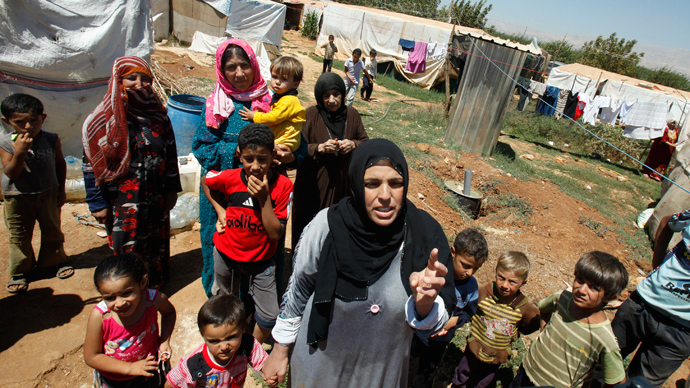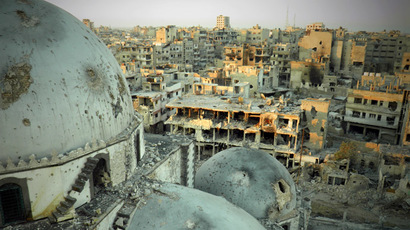US ready to accept thousands of Syrian refugees

More than two million Syrians have fled their war-torn country, with many settling in nearby Lebanon and Jordan. Now, the US will open its doors to 2,000 of “the most vulnerable” Syrian refugees – as long as they pass a lengthy background screening.
Two thousand Syrians will be granted the opportunity to live in the US, marking a significant increase from the approximately 90 Syrian refugees the US admitted over the last two years, according to Foreign Policy’s The Cable.
The United Nations estimates that nearly 3.5 million Syrian refugees will be in the neighboring countries of Jordan, Lebanon, Turkey, Iraq and Egypt by the end of the year, with 1.9 million more in desperate need of assistance. The death toll in Syria continues to rise, with over 4,400 people killed during Ramadan this year.
The Obama administration is responding to the rapidly deteriorating conditions by agreeing to take in 2,000 Syrian war victims who will be given permanent residence status. Even though the number will represent only a fraction of a per cent of Syrian refugees in need of assistance, the administration’s decision marks a major shift in policy.
“Referrals will come within the next four months. We will need to interview people and perform security and medical checks,” Kelly Clements, the State Department’s assistant secretary for Population, Refugees and Migration, told Foreign Policy.
But the chosen victims – many of whom are expected to be women and children – won’t be leaving the country anytime soon. Due to the time it takes to process their applications, “we’re not likely to see Syrian refugees into those numbers before well into 2014,” Clements said.
That means the applicants will be forced to endure another cold winter and several more months in a country plagued by violence and bloodshed.
“It’s 90 degrees now, but in a few months it’s going to snow and people are going to be freezing,” said Noah Gottschalk, Oxfam America’s senior humanitarian policy advisor.
The application process is expected to take months because of the State Department’s extensive background screenings. US officials will carefully select refugees who appear to have no ties to anyone with terrorist sympathies. Even though infants and young children are unlikely to be terrorists themselves, the concern is that they might have relatives in Al-Qaeda who would then have an easier chance of entering the US.The CIA this week announced that the greatest threat to US national security would be the prospect of having Al-Qaeda replace the Bashar Assad regime.
Refugees must also show signs of vulnerability, and Clements said that the most eligible applicants are those “exposed to everything from torture to gender-based violence to serious medical conditions.” They must also have no intentions of ever returning to Syria.
"Refugees are subject to an intensive security screening process involving federal intelligence, law enforcement, defense, and homeland security agencies," a State Department official said. "The US government makes every possible effort to uphold and enhance the security screening aspects of the US Refugee Admissions Program. Refugees are among the most carefully screened of individuals traveling to the United States."
About 6.8 million Syrians are currently in need of humanitarian assistance. Although permanent resettlement will help 2,000 lucky victims, it will hardly make a dent in the overall suffering of the millions who are fighting for survival, and it will hardly compare to the 564,000 registered Syrian refugees in Lebanon and the 454,000 in Jordan.
“We are exceedingly frustrated to be quite honest,” Clements said. “Because we can’t keep up with the humanitarian need especially inside Syria.”














